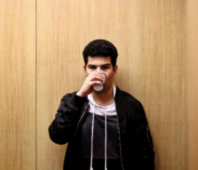A Historic Election
November 3, 2020 will be an important day for global politics. The eyes of the world will scrutinize U.S elections during which its citizens will vote for their legislators, but more importantly, by showing their preference, their representatives in the electoral college elect next term´s president, who will then lead one of the global hegemonic powers. As I have mentioned before, this has not been a normal year, and the same can be said about the upcoming elections. Therefore, this article explores some of the key aspects of this election.
It is good to remember that the presidential election in the U.S is not direct. Voters do not decide the winner. They show their preference, which is later reflected by a share of electors that is proportional to the population of their state in the meeting of the Electoral College. A candidate can win more direct votes and still lose the electoral college because of the way those votes are distributed across several states. This was the case in the defeats of Al Gore in 2000 and Hilary Clinton in 2016. The purpose of this system, according to Hamilton in Federalist #68, is to make sure that the president elected has the support of a significant number of states and is a person of good merits approved not only by the citizens but also the political elites. The 2020 election is directly marked by the COVID-19 pandemic. The campaign, for instance, will be like no other. Candidates are reinventing themselves. Vice President Biden is hosting events almost entirely digitally from his basement in Delaware to fulfill the physical distancing requirements, which has never been seen in an era in which massive campaign events are the norm. President Trump is exploring the way to return to his traditional campaign rallies, but after his attendance failure in Oklahoma, he is finding challenges in his return to stages. Yet, COVID-19 is not only affecting the campaign; the economy is in a grave situation. The number of jobless claims, according to government data, has reached 19.3 million people. The economy is suffering because of the lockdowns in March and the messy reopening. Economic development is key for the re-election of incumbents. Even though voters tend to have a more positive view of Trump in regard to the economy, 3/5 of registered voters, according to a New York Times Poll, are in disagreement with his handling of the pandemic. In this year, this factor will be key. According to the same poll, Biden leads Trump by 14 points, a bigger lead than Obama’s over both McCain and Romney and double the size of the lead Hilary Clinton had over him in 2016 at this stage of the race. The president is losing support in key demographic groups for his campaign: older white voters and white college-educated women. Both groups disagree with his handling of the pandemic and the social unrest after the killing of George Floyd. The model of The Economist, a highly respected British magazine, gives Biden, on July 4th, 88% probability of victory. It is important to highlight that this model not only relies on survey data but also on state-specific metrics that influence the electoral vote. Trump simply cannot rely on the rhetorical point of not belonging to the political establishment because, after 4 years, he is part of that establishment. However, polls change, we are far away from Election Day, and 2020 can bring more surprises. Therefore, is important to pay attention, especially to the results in Arizona, Ohio, Georgia, and North Carolina, who will decide the election this year. Now, more than ever, it is important to vote because all voices need to be part of this historic election.
|

